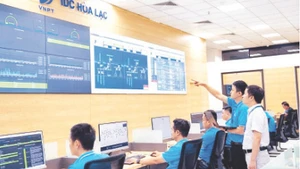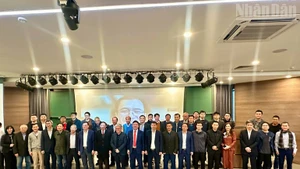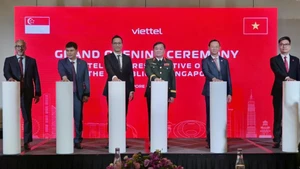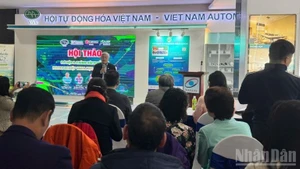Experts believe the Industrial Internet of Things (IIoT) will be the next stage of internet development, driving global digital transformation by connecting robots, sensors, and big data into smart production chains, thereby creating vast potential for industrial and economic growth.
Accelerating the transition to IPv6-only
Nguyen Truong Giang, Deputy Director of the Viet Nam Internet Centre (VNNIC – Ministry of Science and Technology), noted that the development of the industrial internet and IoT represents a breakthrough opportunity for Viet Nam, opening new spaces and creating added value for socio-economic growth.
However, this requires an Internet that is larger, faster, smarter, and more secure. A strong, open, and reliable infrastructure is essential for Viet Nam to build a self-reliant, innovative, and globally connected industrial internet.
Viet Nam has laid solid foundations for Internet development, with national strategies on digital transformation, digital infrastructure, and fibre-optic cable networks. Most importantly, Resolution 57-NQ/TW of the Politburo has set the direction to position science, technology, innovation, and digital transformation as key pillars for the development of the industrial Internet.
Resolution 57 also emphasises modern, secure, efficient, and waste-free digital infrastructure, fostering rapid growth of big data, the data industry, and the data-driven economy. Within this framework, IoT forms a crucial part of the digital-physical infrastructure, alongside telecoms and data, providing the backbone for industrialisation, modernisation, science and technology development, and innovation.
According to VNNIC Director Nguyen Hong Thang, IPv6 and IPv6-only are essential steps towards this vision. IPv6 provides an almost limitless address space, enabling seamless, secure, low-latency end-to-end connections — the foundation of the industrial Internet.
Since its launch in 2013, Viet Nam’s IPv6 adoption has reached over 65%, ranking in the global top 10. The country now aims to accelerate the rollout of IPv6-only from 2026–2030, with a full transition targeted between 2030–2032, phasing out IPv4. With this in mind, VNNIC is drafting a national roadmap and consulting stakeholders with a view to official adoption in the near future.
Helping businesses modernise production
The industrial Internet is seen as the “core infrastructure of modern production”, enabling Viet Nam to shift from traditional connectivity to IoT, linking devices, sensors, and smart manufacturing systems.
Yet many enterprises remain reliant on standard broadband services, exposing significant limitations. Network congestion, dropped VoIP calls, slow file transfers, or unstable VPN access are not just inconveniences but real costs in productivity, opportunity, and brand reputation.
To address this, enterprises are turning to dedicated leased-line internet services. Unlike shared broadband, a leased line offers a private, symmetrical, 24/7 high-speed connection, free from congestion and performance fluctuations.
VNPT, for instance, provides leased-line solutions with direct access to Viet Nam’s national Internet gateway, ensuring independent and secure connections. With static IP ranges, businesses can deploy critical services such as websites, email servers, VPNs, and IP telephony. Offering scalable speeds of up to tens of Gbps, this solution ensures enterprises of all sizes can expand with confidence.
















